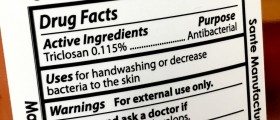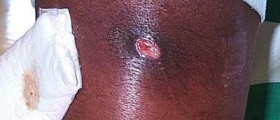
Typhoid Fever
Typhoid fever is an infection caused by Salmonella typhi. The disease caused by these bacteria is rather frequent and it can affect all people regardless the age or gender. Basically, the spread of typhoid fever is connected to poor hygiene conditions. Typhoid fever develops 3 to 60 days after the ingestion of the contaminated food or water. The perfect prevention is obtained from vaccination. Still the vaccine is not commonly used and is not efficient to full extent. It is generally reserved for people who are traveling to the countries in which typhoid fever is endemic.
Causes of Typhoid Fever
Consumption of the contaminated food or water is the primary cause of the infection. Even a contact (handshake) with a person who is suffering from this disease can be a way of the transmission.
The water gets contaminated in all those regions in which sewerage systems are not appropriately built or maintained. Poor sanitation is additional cause of water contamination.
People who have had the disease may eventually become chronic carriers of the bacterium and excrete the bacterium in feces. This way they become chronic source of the infection and can at any time contaminate the food or water. This is why all the people who have had the disease should be checked to see whether they are carriers of the bacterium. Even in them the bacterium can be totally eradicated by proper antibiotics.
Symptoms of Typhoid fever
The patient may complain about diarrhea or constipation. In some cases of typhoid fever, there are even traces of blood in stool. Generally, all the patients are weak and tired. Some of them can develop increased body temperature and chills. And rarely bradycardia may occur.
Treatment of Typhoid Fever
The patient is prescribed suitable antibiotics. The problem is that due to excessive use of antibiotics some bacteria have already developed resistance to certain antibiotics. This is why the doctors need to be careful when choosing an antibiotic for typhoid fever. Chloramphenicol is one of the antibiotics which usage led to resistance of some Salmonella bacteria.
The measures of proper hygiene have to be performed. The person needs to wash his/her hands with hot water and soap after using toilet.
After the treatment the doctor will have to ask for repeated test of the stool on bacteria because this way the chronic carriers can be identified.
Typhoid fever in extremely rare cases leads to intensive gastrointestinal bleeding and perforation of the intestines. If this happens the patient is treated surgically.

















Your thoughts on this
Loading...